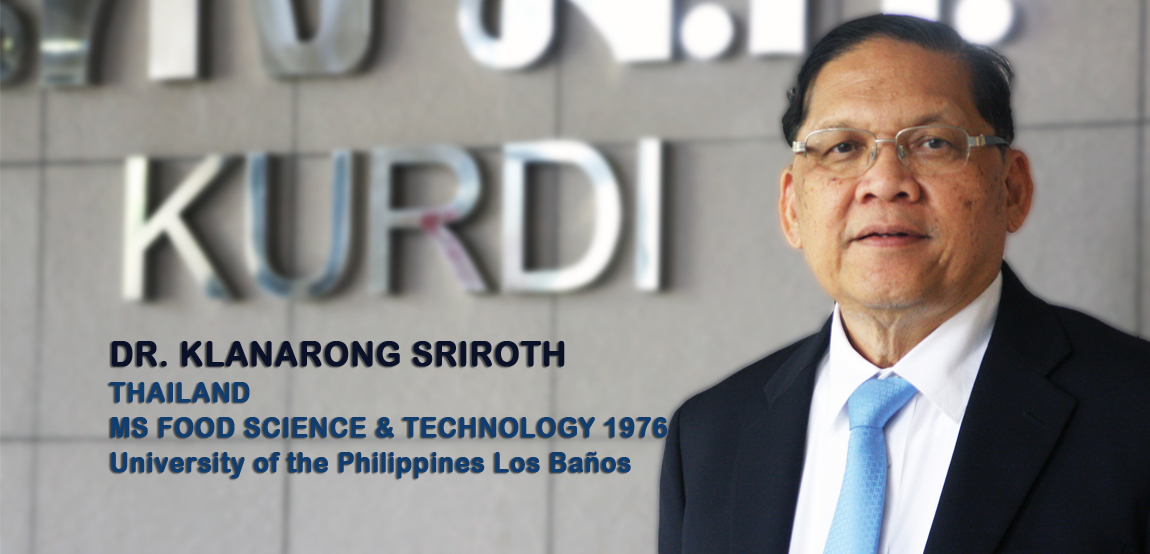Much of this growth started in a one-room laboratory at Kasetsart University (KU) run by visionary researcher Dr. Klanarong Sriroth, back in the early 1990s. Early on, Dr. Klanarong recognized the many different uses of cassava and the varied but unique properties of cassava starch, which could have great potential for adding value to its products.
Dr. Klanarong attributes his success in cassava starch technology to his graduate education way back in the 1970s. Under a SEARCA Scholarship, Dr. Klanarong took his master’s degree in food science and technology at the University of the Philippines Los Baños. There, he was introduced to professors and experts in cassava production and technology. Logically, his thesis was also on cassava processing. All these experience he carried back to his one-room laboratory in his home country.
Thus, the lowly laboratory gave birth to KU’s Cassava and Starch Technology Research Unit, the only laboratory in Thailand recognized by both the academe and the private industry and is part of the National Center for Genetic Engineering and Biotechnology of the Ministry of Science and Technology of Thailand. With Dr. Klanarong still at the helm, this laboratory has developed valuable innovations in starch modification technology, which have immensely contributed to Thailand’s cassava starch industry. The laboratory is now a source of certification for maintaining standards for cassava export from Thailand to the global market as attested by the Thai Tapioca Starch Association of Thailand. Aside from quality assurance, this laboratory is playing a key role in human resource development by honing future scientists and scholars who will sustain the positive gains that Dr. Klanarong has initiated.
As a well-known scientist, Dr. Klanarong was able to become an effective “bridge” between science and its stakeholders—the academe, government policy makers, the private sector,
farmers, and the scientific community. This type of role effectively channels and makes use of the results of basic research in his laboratory in policy making and the overall development of the sugar and starch industry. Now, Thailand is one of the largest exporters of starch products, owning more than half of the global market share.
Aside from starch, Dr. Klanarong’s contribution also extends to the Thailand sugar industry, which can be traced back to his doctoral degree in 1986. One of his research outputs implemented by the Ministry of Industry was the pricing system of sugarcane and sugar in Thailand. This improvement in the pricing system, from sugarcane weight to commercial cane sugar (CCS) system was more beneficial to all partners and stakeholders of the sugarcane and sugar industry in Thailand.
For his innovative and visionary leadership, Dr. Klanarong has been recognized by SEARCA as one of its Outstanding SEARCA Scholarship Alumni. The award gives recognition to SEARCA’s graduate alumni who have personified SEARCA’s values and philosophy and have distinguished themselves through their personal achievements, professional accomplishments, public service, and other meritorious endeavors. This is the first time since its establishment that SEARCA will be giving such prestigious recognition to its alumni, who it considers as ambassadors for agriculture and rural development in the region. Dr. Klanarong and 10 other OSSA laureates will be awarded during SEARCA’s golden anniversary celebration on 25 November 2016.
